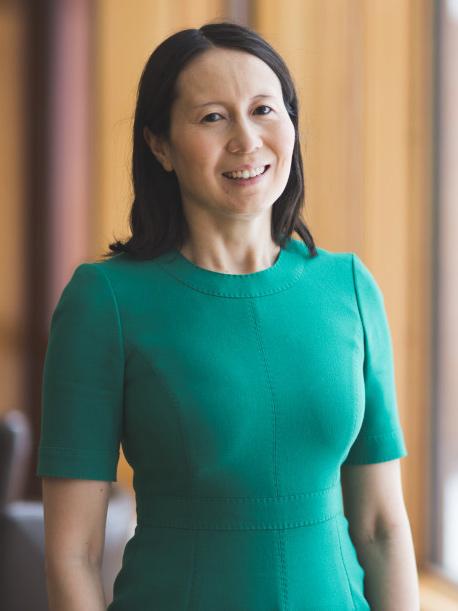The technical term for platforms like AirBnb and Task Rabbit is “peer-to-peer exchanges,” but most people know them as part of the sharing economy. The sharing economy, or that part of commerce where individuals share their resources with others for a fee, has been around for thousands of years.
 Tuck professor Nailya Ordabayeva teaches the core marketing course in the Tuck MBA program. She also teaches Marketing Principles for Creating Value and Building Your Personal Brand in custom Tuck Executive Education programs for organizations.
Tuck professor Nailya Ordabayeva teaches the core marketing course in the Tuck MBA program. She also teaches Marketing Principles for Creating Value and Building Your Personal Brand in custom Tuck Executive Education programs for organizations.
It really took off, however, with the rise of the Internet and big data, which allowed people to connect with potential consumers much easier. eBay is probably the most successful and well-known example of the power of the sharing economy, but it’s still just a small fraction of the peer-to-peer activity happening on a daily basis. According to a study by Price Waterhouse Coopers, revenue in the sharing economy is expected to reach $335 billion by 2025.
In a new paper published in The Journal of Consumer Psychology, Tuck associate professor Nailya Ordabayeva finds a unique driver of consumer demand in the sharing economy: a belief in the meritocracy. She discusses the paper in the conversation below.
How does this paper fit into your research agenda?
This project is a continuation of my overall interest in the role of people’s beliefs about society and the economy in their choices of products and their evaluation of products they have purchased. People with certain political beliefs tend to be more satisfied with their purchases than people with other beliefs. That led to a natural question: whether or not people’s ideological beliefs would have implications in nontraditional market exchanges, more specifically in people’s exchanges, interactions, and preferences for peer-to-peer market providers.
You specifically chose to focus on a subset of ideological belief known as “economic system justification (ESJ).” What is ESJ and why did you decide to study it?
ESJ is a way of measuring people’s tendency to justify the existing economic system because it offers everyone an opportunity to succeed. Another way of putting it is the meritocracy. People with high ESJ scores believe the economic system is fair and everyone earns their high or low economic position. People with low ESJ scores believe the system is unfair because everyone works hard, but many fail through no fault of their own. We chose to focus on ESJ and its role in demand for peer-to-peer exchanges because it’s an important dimension of ideological beliefs, and we suspected it transcends politics and religion.
What would your prior research in this field lead you to believe about ESJ’s connection to peer-to-peer demand?
You might predict that consumers on the liberal side would be more interested in supporting peer-to-peer providers as a way to support greater opportunities for these nontraditional workers in the marketplace.
Did that prediction hold up?
Well, what we found is an additional motive that can actually generate the opposite prediction and pattern: people who believe the marketplace is fair (a group that tends to be more conservative) actually have their own motives to support peer-to-peer providers because they appreciate the entrepreneurship and hard work that these providers need to muster to be successful in the economy. The findings show that it’s not so clear cut and there can be different reasons to support peer-to-peer providers. The common thread here, however, is that higher ESJ scores increase consumers’ interest in participating in the sharing economy.
The key takeaway is to understand the economic beliefs of your audience and tailor your messaging, positioning and media buy for the market where you are operating. If your market has a high percentage of high ESJ people, focus on how entrepreneurial and innovative you are, because that justifies your ability to stay and compete in the marketplace.
— Nailya Ordabayeva, Associate Professor of Business Administration
What are the key takeaways here for marketers and peer-to-peer providers?
The key takeaway is to understand the economic beliefs of your audience and tailor your messaging, positioning and media buy for the market where you are operating. If your market has a high percentage of high ESJ people, focus on how entrepreneurial and innovative you are, because that justifies your ability to stay and compete in the marketplace. Maybe even advertise alongside Shark Tank. If you want to reach low ESJ people, use messaging that highlights your underdog status and how you’re facing more obstacles in the current competitive marketplace and need extra support.
Tuck School of Business
Please visit the firm link to site



